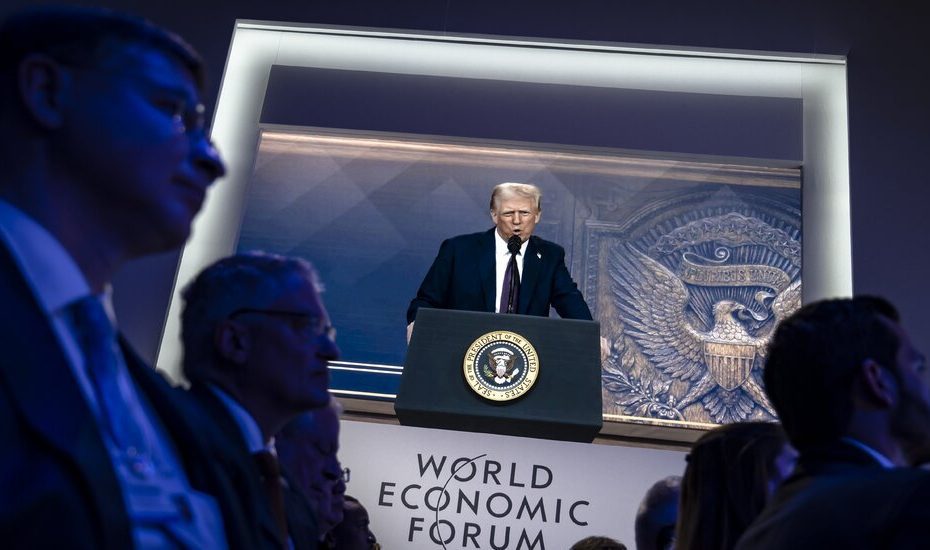President Trump on Thursday took an unexpected swipe at the big banks that have encouraged his return to office, citing long-standing Republican complaints that they are being discriminated against by big lenders.
The moment came almost as an aside, as Mr. Trump virtually participated in a question-and-answer session with executives gathered at the World Economic Forum in Davos, Switzerland.
His questioner, Brian T. Moynihan, the chief executive of Bank of America, asked a rote, prepared question about the new administration's plans for the economy.
Mr. Trump concluded a nearly two-minute response by observing:
“By the way, speaking of you – and you've done a fantastic job – but I hope you start opening your bank to conservatives, because a lot of conservatives are complaining that the banks aren't allowing them to do business inside the bank, and that included A place called Bank of America,” Mr. Trump said.
He continued, referring to JPMorgan director Jamie Dimon (who was not on stage): “You and Jamie and everyone, I hope you're going to open your banks to conservatives, because what you're doing is wrong.”
Mr Moynihan responded with what appeared to be a nervous laugh and by changing the subject to next year's World Cup.
A Bank of America spokesman, Bill Halldin, later said in a statement that the lender never closed the accounts for political reasons but was “required to follow extensive government rules and regulations that sometimes result in decisions to exit customer relationships.” “
Mr Trump's exposure to the subject has been a surprise at this point, not least because bankers are oversupplied with his second term, which they hope will be an era of profitability encouraged by relaxed regulations. Still, the topic of political discrimination is a well-hit one that Mr. Trump occasionally raised during his campaign.
For years, conservatives have complained about diversity, equity and inclusion programs at major lenders and limits on investments in fossil fuels and energy. They have also accused banks of closing accounts for, or debanking, religious groups.
Those concerns have been echoed by cryptocurrency financiers and prominent venture capitalists who now form a major bloc of support for Mr. Trump. They were also the subject of a letter last year from Bank of America's Republican attorney general who said the lender was “responsible for some of the worst known cases of debanking.” Bank of America responded with a letter denying the charges.
In response to debanking complaints, banking groups generally respond by blaming regulations that require them to flag and automatically close accounts that exhibit suspicious activity related to money laundering. They point out that complaints about such closures come from customers large and small across the political spectrum.
A spokeswoman for JPMorgan, Patricia Wexler, said there was “regulatory ambiguity” to blame.
“We follow the law and guidance from our regulators and have long said there are problems with the current framework that Washington must address,” she said in a statement.

